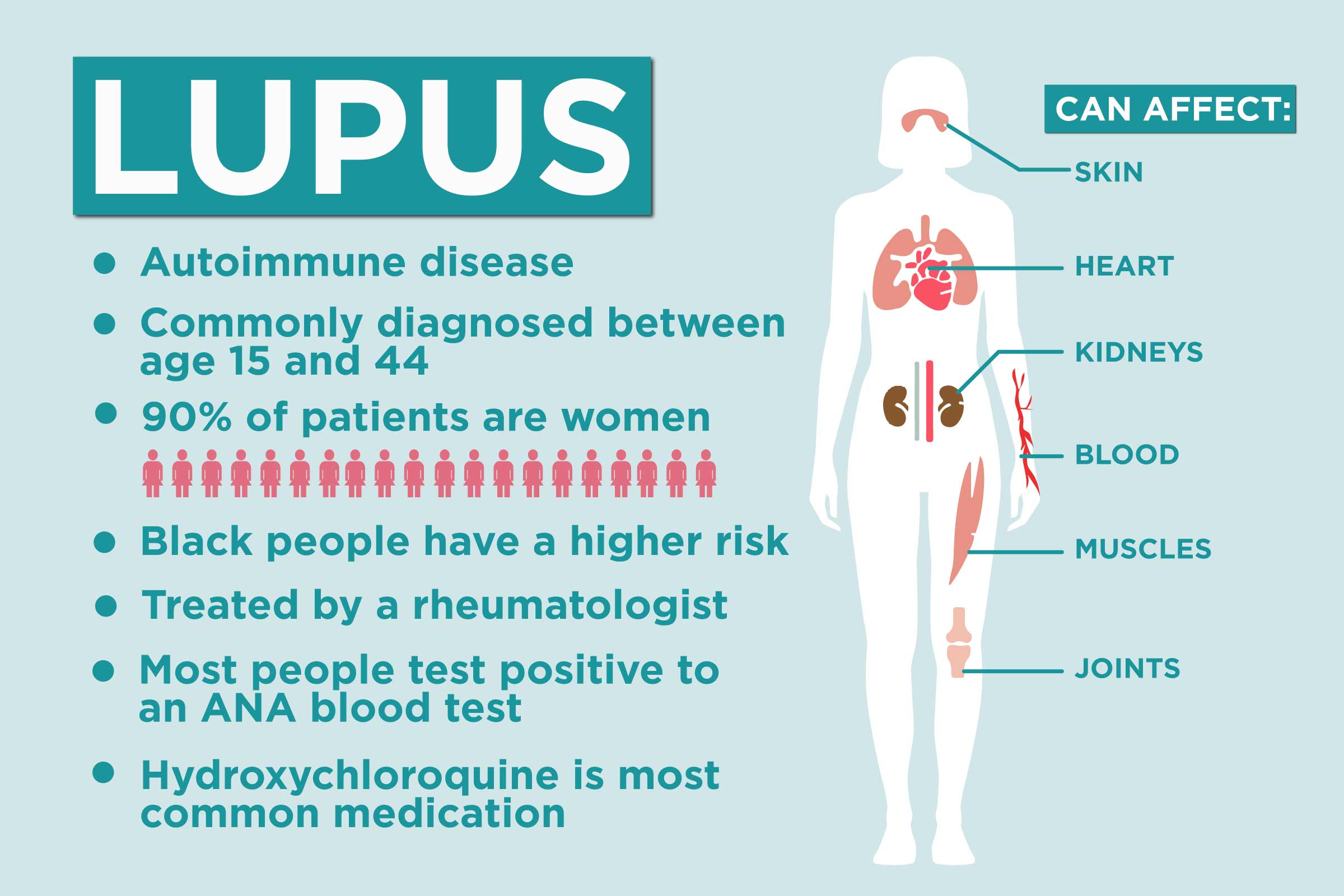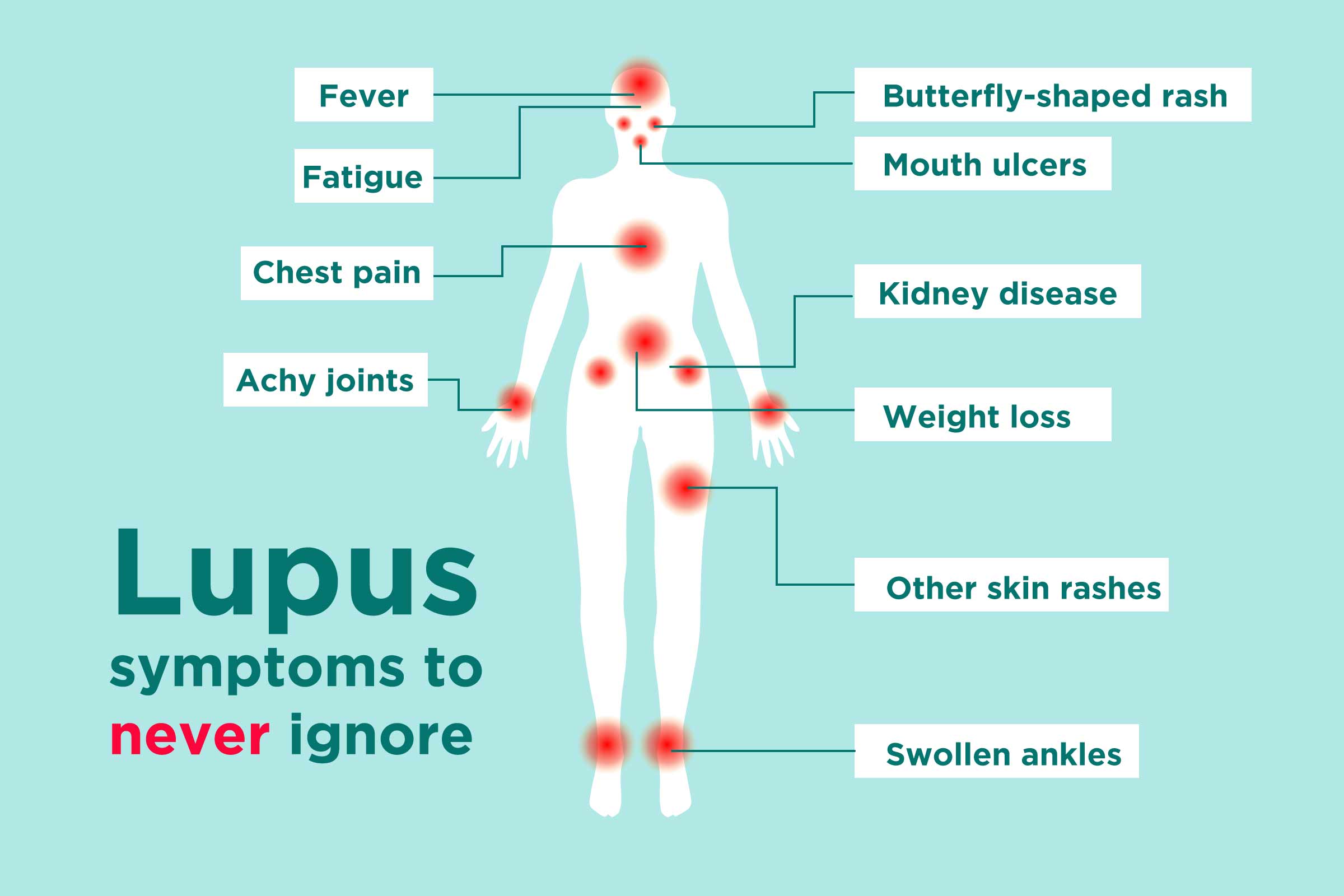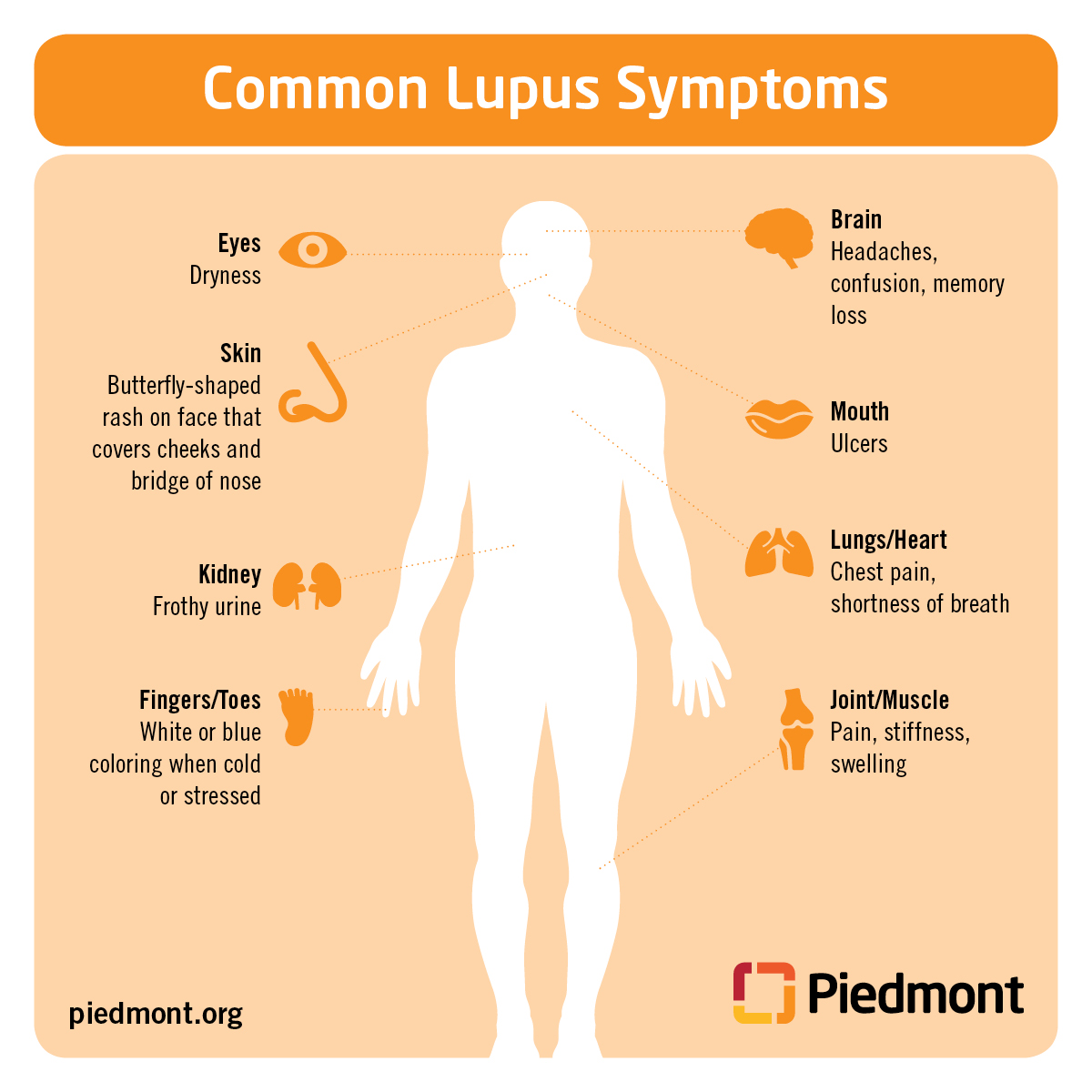How Does Someone Get Lupus? Unraveling The Mystery Of This Complex Condition
Have you ever wondered, really, how something like lupus begins? It's a question that many people ask, and it's a very important one. This condition, you know, can feel like a puzzle with many pieces. People often want to know what causes it, or if it's something they could catch, or even pass on. It's a natural concern, and honestly, understanding it better can bring a lot of peace of mind.
Lupus is what we call an autoimmune condition, and it's a bit different from many other illnesses. Instead of your body's defenses fighting off bad things like germs, they actually start attacking your own healthy parts. It's a confusing situation for the body, and for the people living with it, too. So, figuring out why this happens is a big deal, and people are always looking for clear answers, which is quite understandable.
This article aims to shed some light on this very topic. We'll look at what medical science tells us about how lupus might start. We'll talk about the different factors that seem to play a part, and who might be more likely to develop it. It's all about getting a clearer picture, so you can feel more informed, which is really what we hope for you.
Table of Contents
- What is Lupus, Anyway?
- The Big Question: How Does Someone Get Lupus?
- Who Tends to Get Lupus?
- Understanding Risk Factors, Not Just Causes
- Living with the Unknown: What You Can Do
- Frequently Asked Questions About Lupus
What is Lupus, Anyway?
To really get a grip on how someone might get lupus, it helps to know a little about what it actually is. Imagine your body's protection system, your immune system, as a team of very good guards. Their job is to keep you safe from things like colds, the flu, or other bad germs. They are, you know, supposed to be on your side, always.
But with lupus, something quite strange happens. This team of guards gets confused. They start seeing parts of your own body as if they were invaders. So, they begin to attack healthy tissues and organs. This can happen anywhere, really, from your skin and joints to your kidneys, heart, or even your brain. It's a widespread kind of problem, and that's why lupus can show up in so many different ways, actually.
This attacking of one's own body causes swelling, pain, and damage. It's a chronic condition, meaning it stays with a person for a long time, often for life. The symptoms can come and go, in what are called "flares." During a flare, a person might feel very unwell, and then, you know, things might calm down for a while. It's a bit unpredictable, which makes it harder to live with, too.
The Big Question: How Does Someone Get Lupus?
Now, for the big question: how does someone get lupus? The simple answer is that there isn't just one single cause. It's not like catching a cold where a specific virus makes you sick. Instead, doctors believe it's a mix of different things working together. It’s like a combination lock, where several numbers have to line up for it to open, so to speak.
Scientists and doctors are still doing a lot of research to fully understand this. They're looking at many different angles, trying to piece together the whole story. It's a very active area of study, and new insights are always coming out, which is quite good.
It's Not Contagious, That's For Sure
One thing to be very clear about is that lupus is not contagious. You cannot catch lupus from another person. You won't get it from shaking hands, sharing food, or even through intimate contact. It's not like the flu or a common cold that spreads from person to person. This is an important point, as people sometimes worry about it, you know.
It's a condition that develops within a person's own body, due to internal processes and external influences. So, there's no need to worry about being around someone who has lupus. They are not a risk to your health in that way, and that's a good thing to remember, really.
Genetic Threads and Family Ties
Genes definitely play a part in who gets lupus. It's like having certain predispositions passed down through families. If someone in your close family, like a parent or a sibling, has lupus, your chances of getting it are a little higher. It's not a direct inheritance, though, like eye color. You don't just "get" lupus because your mom has it, for example.
Instead, what you might inherit is a tendency for your immune system to act in a certain way. This means you might have a genetic makeup that makes you more susceptible. But even with these genetic tendencies, most people with a family history of lupus never develop the condition. It's just one piece of the puzzle, you see, not the whole picture, basically.
Researchers have found many genes that seem to be linked to lupus. Each one might add a tiny bit to the overall risk. It's not one single "lupus gene," but rather a collection of genetic variations that, when put together, might increase the likelihood. This is a very complex area of study, and scientists are still figuring out how all these genes work together, too.
Environmental Whispers and Triggers
Beyond genetics, things in our surroundings, or "environmental factors," seem to play a role in triggering lupus in people who are already susceptible. It's like these external elements can flip a switch in someone whose body is already primed for it. These triggers don't cause lupus in everyone, just in those with that underlying genetic tendency, so it's a bit specific.
Sunlight (UV Light): For many people with lupus, exposure to sunlight, especially ultraviolet (UV) light, can make their symptoms worse or even bring on a flare. It can cause skin rashes, but it might also trigger internal issues. It's thought that UV light can damage skin cells, and in someone with lupus, this damage might set off an immune response. So, sun protection is often a big deal for people with lupus, you know.
Infections: Some infections might act as a trigger. Viruses like Epstein-Barr virus (EBV), which causes mono, have been looked at closely. The idea is that an infection might kickstart an immune response that then, for some reason, doesn't turn off properly in people who are already at risk. The body keeps fighting even after the infection is gone, and then starts attacking itself. It's a kind of mistaken identity, apparently.
Medications: Certain medicines can cause a temporary form of lupus called "drug-induced lupus." This type usually goes away once the person stops taking the medicine. Medicines for heart problems or high blood pressure are sometimes involved. It's a bit different from the more common type of lupus, as it's directly linked to a specific drug, and usually resolves, which is a good thing.
Stress: While stress doesn't directly cause lupus, it can definitely make symptoms worse for people who already have the condition. It might also act as a trigger for the first time in someone who is genetically prone. Stress affects the whole body, including the immune system, and a big stressful event could potentially push a susceptible person towards developing lupus. It's not a direct cause, but more of an aggravating factor, really.
Hormones: Lupus is far more common in women than in men, especially during their childbearing years. This strongly suggests that hormones, particularly estrogen, play a role. Estrogen levels can influence the immune system, and it's thought that higher levels might contribute to the development or worsening of lupus in some people. This is why women are so much more affected, which is a key characteristic, honestly.
When Your Immune System Takes a Wrong Turn
At its heart, lupus is a problem with the immune system's control. Normally, your body's defenses are very good at telling the difference between your own cells and foreign invaders. But in lupus, this ability gets messed up. The immune system starts making special proteins called autoantibodies. These autoantibodies mistakenly target healthy tissues and organs. It's like they've lost their way, you know.
These autoantibodies cause inflammation and damage throughout the body. The exact reason why this happens in some people and not others is still being studied. It's believed to be a complex interaction between a person's genetic background and various environmental triggers. So, it's not just one thing, but a combination, which is very important to understand.
Who Tends to Get Lupus?
While lupus can affect anyone, some groups of people are more likely to develop it. This helps us understand the patterns of the condition, and it also guides research. It's not about blame or anything like that, just about recognizing tendencies, you know.
Gender: Women are far more likely to get lupus than men. About 9 out of 10 people with lupus are women. This strong difference suggests that female hormones, especially estrogen, play a very big role, as we mentioned earlier. It's a striking difference, which is quite notable.
Age: Lupus often starts between the ages of 15 and 44. While children and older adults can get it, these younger adult years are the most common time for symptoms to first appear. It's a period of life when many hormonal changes happen, which might be a factor, too.
Ethnic Background: Lupus is more common and often more severe in certain ethnic groups. People of African American, Hispanic/Latino, Asian, and Native American descent are more likely to develop lupus than Caucasians. The reasons for this are likely a mix of genetic factors and possibly environmental or socioeconomic influences. It's a complex picture, and researchers are still working to understand all the reasons, apparently.
Understanding Risk Factors, Not Just Causes
It's helpful to think about "risk factors" rather than just "causes" when it comes to lupus. A "cause" implies a direct link, like how a specific germ causes a specific illness. But a "risk factor" is something that increases your chances of getting a condition, without being the sole reason. It's more about likelihood, you know, rather than certainty.
So, having a family member with lupus is a risk factor. Being a woman is a risk factor. Being exposed to certain environmental triggers might also be a risk factor. These factors don't guarantee that someone will get lupus, but they do mean that the possibility is a bit higher. It's like stacking the deck slightly, in a way.
The interplay between these different risk factors is what scientists believe leads to lupus. It's rarely just one thing, but rather a combination of genetic susceptibility meeting environmental triggers at the right (or wrong) time. This is why it's such a challenging condition to pinpoint, and why understanding it takes so much effort, you know.
As we explored earlier, even simple words like "do" and "does" have specific uses, much like understanding lupus involves looking at very specific factors and how they interact. This blog post was created with reference to a text provided, which helped in framing the discussion about clarity and precision in understanding complex topics. The medical information about lupus, however, comes from general scientific and medical knowledge.
Living with the Unknown: What You Can Do
Even though we don't have a single, clear answer for how someone gets lupus, understanding the risk factors and triggers is still very helpful. If you or someone you care about has symptoms that might point to lupus, talking to a doctor is the most important step. Early diagnosis can make a big difference in managing the condition and feeling better, which is pretty significant.
There's no cure for lupus right now, but there are many ways to manage its symptoms and prevent serious damage to organs. This often involves medicines, lifestyle adjustments, and regular check-ups with doctors who specialize in lupus. It's a journey, and having a good medical team by your side is really key, you know.
Learning more about lupus can help you or your loved ones feel more in control. Knowledge can be very empowering. For more information and support, you might find it helpful to visit reputable health organizations that focus on autoimmune diseases. Learn more about lupus on our site, and you can also link to this page for additional resources.
Remember, while the exact "how" of getting lupus remains a complex puzzle, researchers are always working to put the pieces together. With each new discovery, we get a little closer to better treatments, and maybe one day, a cure. It’s a field that is always moving forward, which is very hopeful.
For more detailed information on lupus, you can always check out trusted medical sources like the Lupus Foundation of America. They have a lot of helpful facts and support. It's good to get information from reliable places, you know, especially with health topics.
Frequently Asked Questions About Lupus
Is lupus hereditary?
Lupus is not directly passed down like some traits, but genetics do play a part. You might inherit a general tendency or a higher risk from your family. However, most people with a family member who has lupus will not develop the condition themselves. It's more about having a certain predisposition, not a guarantee, you know.
Can stress cause lupus to flare?
Yes, stress can definitely trigger lupus flares or make existing symptoms worse for people who already have the condition. While stress doesn't cause lupus on its own, it can affect the immune system and potentially act as a trigger in someone who is already susceptible. Managing stress is often a very important part of living with lupus, honestly.
What are the early signs of lupus?
The early signs of lupus can be quite varied and often mimic other conditions, which can make it hard to spot at first. Common early signs include extreme tiredness, joint pain and swelling, skin rashes (especially a butterfly-shaped rash on the face), fever, and sensitivity to sunlight. These symptoms can come and go, and they might affect different parts of the body at different times, so it's a bit tricky to pin down, you know.

Lupus Facts: 17 Things to Know About Lupus

Lupus Signs and Symptoms: How to Tell If You Could Have Lupus

Lupus Causes, Symptoms and Treatment Information | Piedmont Healthcare